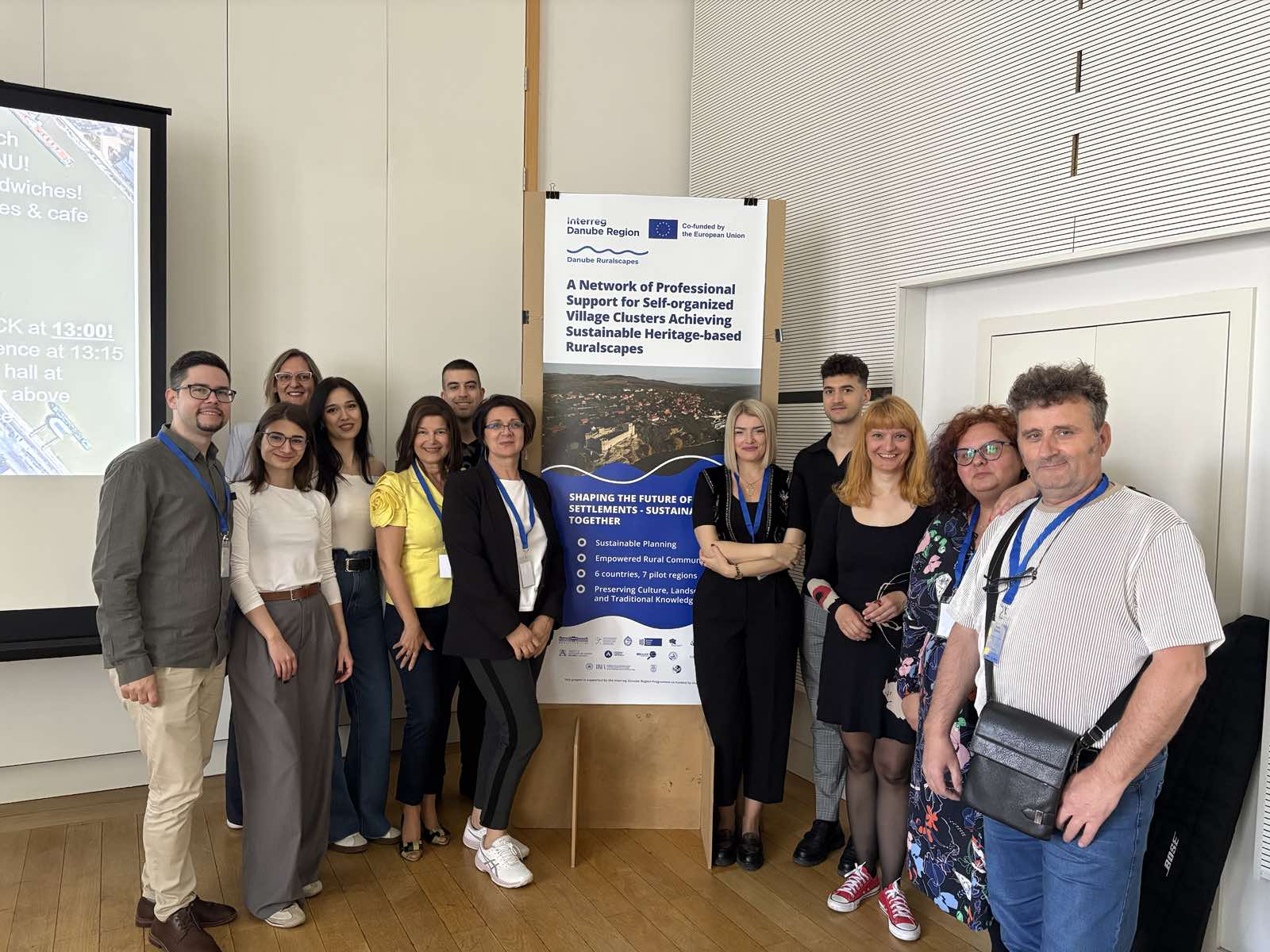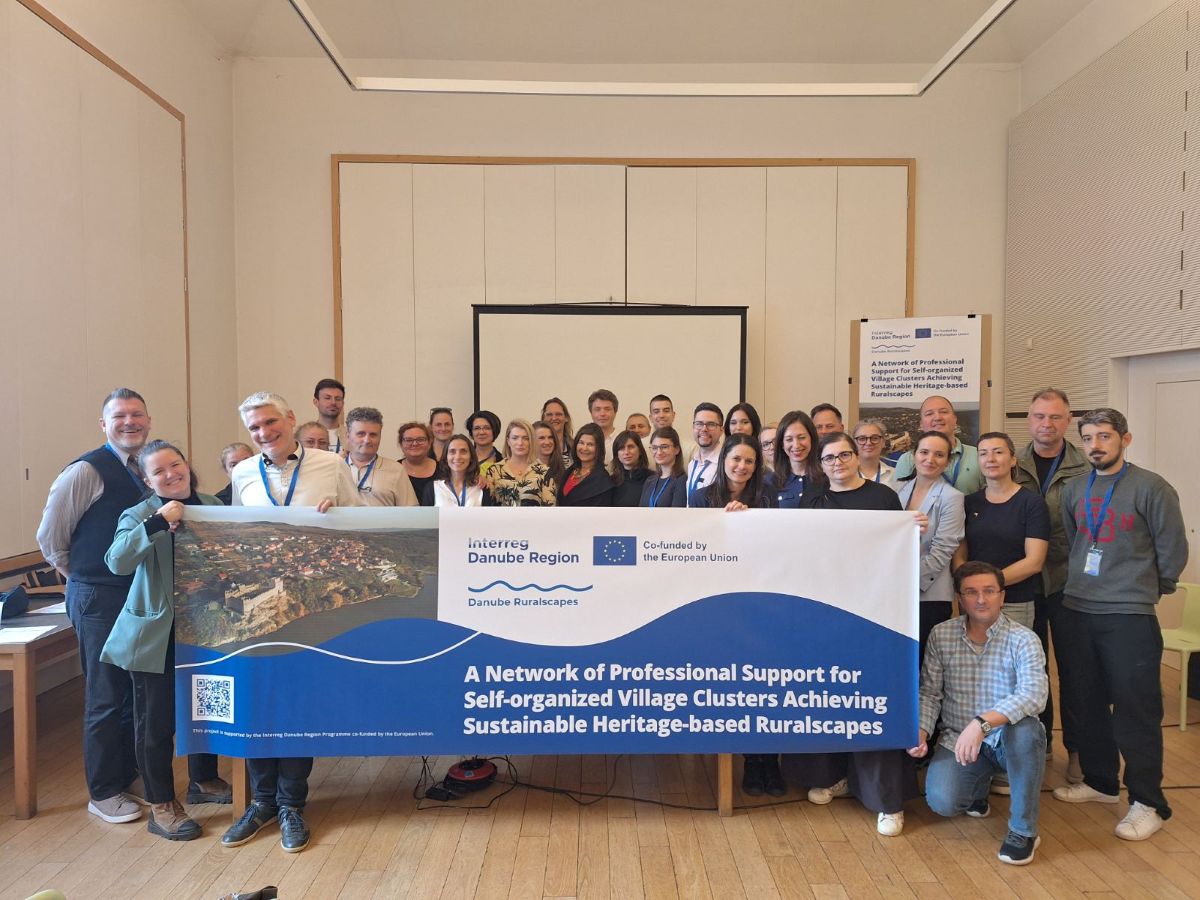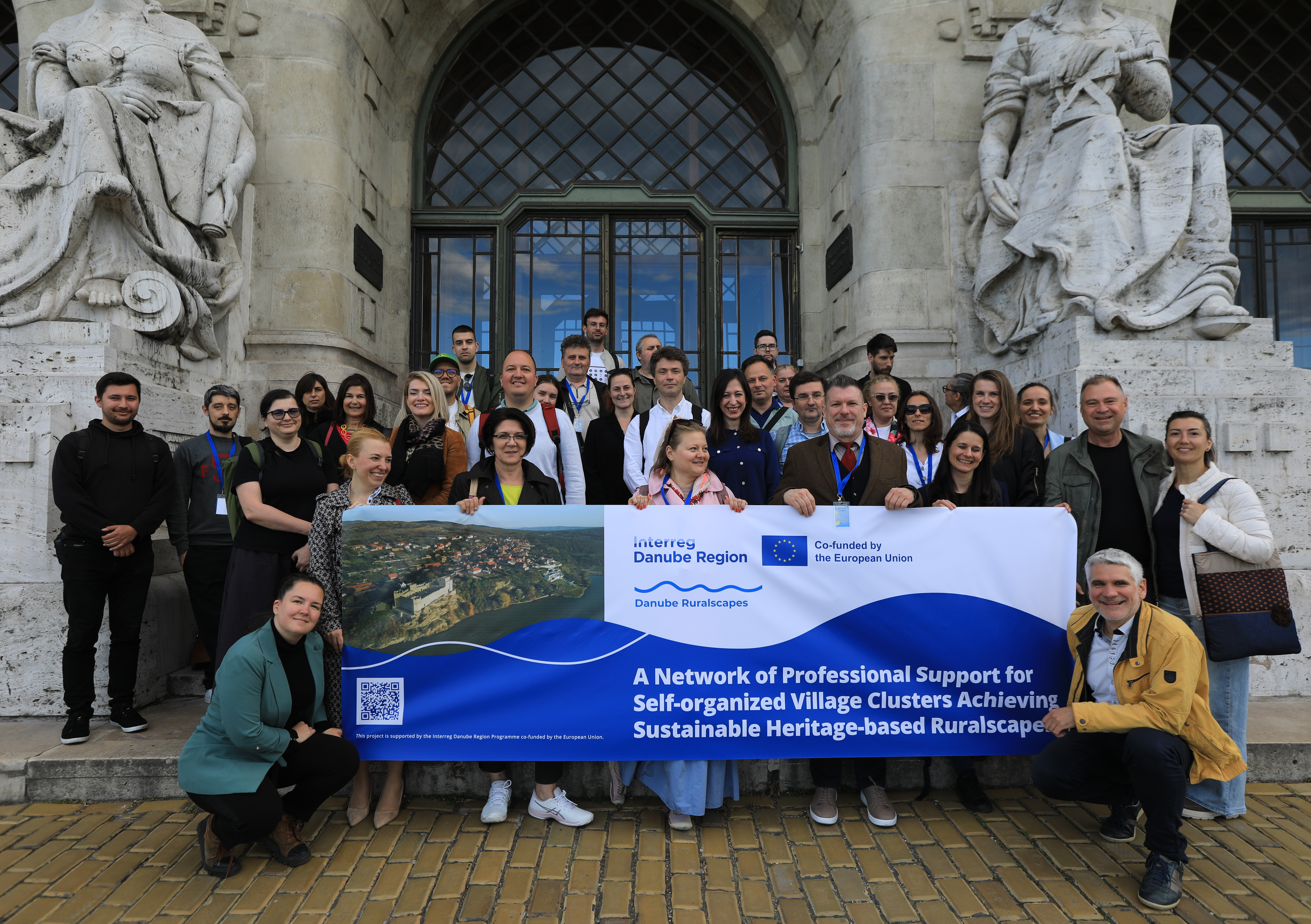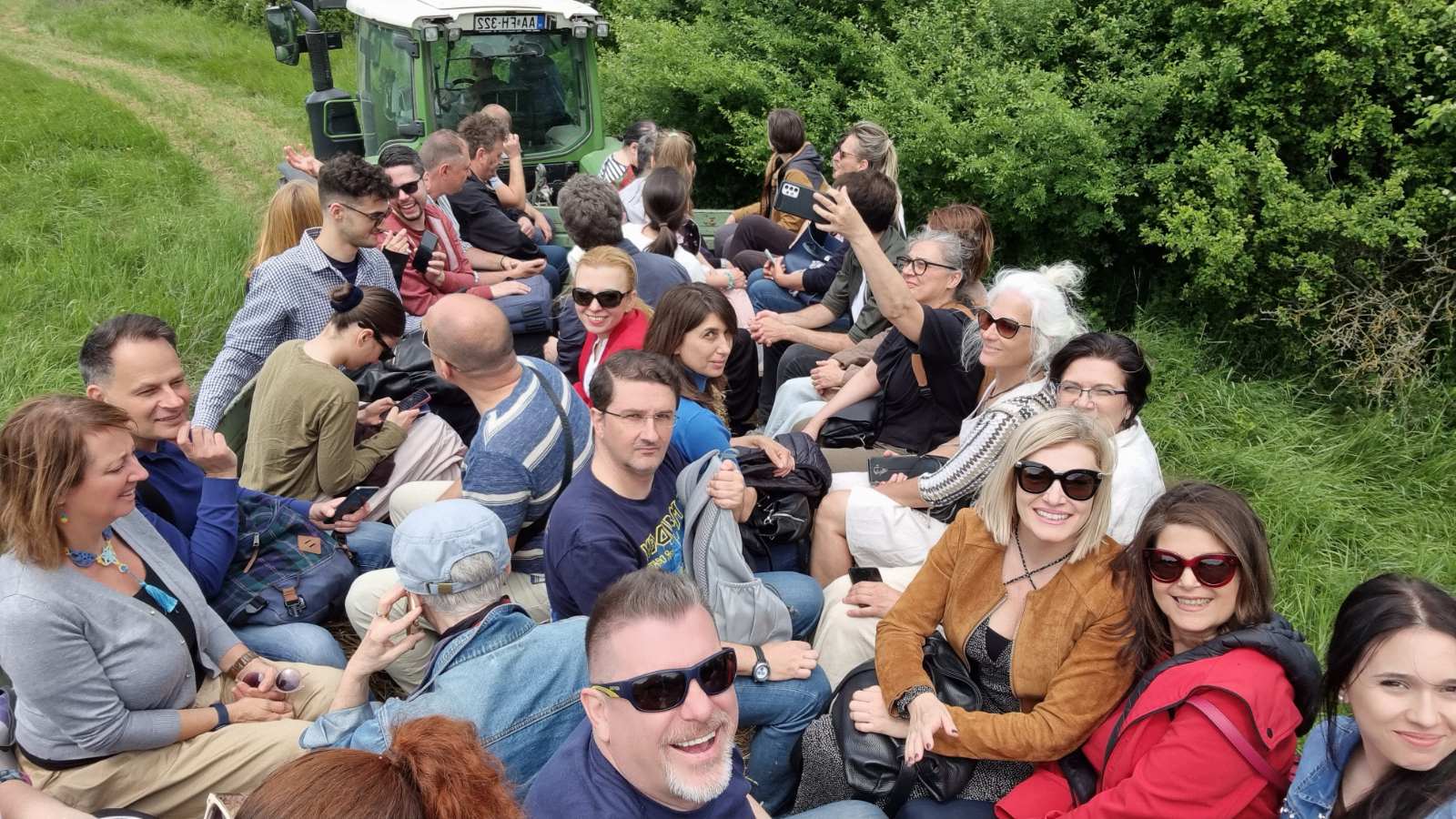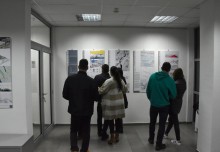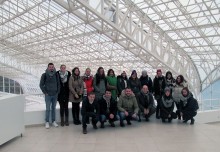Danube Ruralscapes Project: Report from the KICK-OFF meeting in Budapest
May 28–30, 2025
The first partner meeting within the international research project INTERREG DANUBE RURALSCAPES was held from May 28 to 30, 2025, at the Budapest University of Technology and Economics (BME).
The Faculty of Architecture in Belgrade is one of 15 project partners, involving six Danube countries and focusing on seven micro-regions.
This meeting marked the start of numerous project activities, such as showcasing good practices in the restoration, regeneration, and protection of cultural heritage to preserve the identity of rural areas along the Danube, collaboration with stakeholders, and creating international synergies within the frameworks of other European projects.
On the first day (May 28), Management Training for Project Partners was held, followed by an International Workshop and Conference titled “Challenges of Rural Areas in the Danube Region.” The event presented examples of good practices and aimed to define key topics and issues for further project work.
On the second day (May 29), project partners presented their targeted micro-regions and participated in a workshop focused on work plan presentation and discussions regarding project implementation. The day concluded with a Steering Committee Meeting.
As part of the micro-region presentations, Prof. Dr. Aleksandra Đukić and Research Assistant Nikola Mitrović from the University of Belgrade – Faculty of Architecture, together with partners from the Regional Development Agency “Branicevo-Podunavlje”, presented the Golubac micro-region, which will be explored through strategic and pilot actions in Serbia.
During the conference, other members of the team from the University of Belgrade – Faculty of Architecture also participated in presenting good practice examples: Prof. Dr. Aleksandra Stupar, Assoc. Prof. Dr. Danijela Milovanović Rodić, Research Associate Dr. Jelena Brajković, Junior Research Assistants Emilija Jović and Jovana Stefanović, and Teaching Assistant Novak Đukić. In addition to the faculty representatives, associated strategic partners — Agency for Spatial and Urban Planning of the Republic of Serbia and Serbia Green Building Council — also contributed examples of good practices.
On the final day (May 30), a joint study visit was organized to the Ipoly Valley, which will serve as a case study for the lead partner from Budapest. Participants had the opportunity to see examples of heritage-based rural innovations — from restored landscapes and sustainable tourism sites to cultural infrastructure repurposed using local materials.
Danube Ruralscapes Press release

